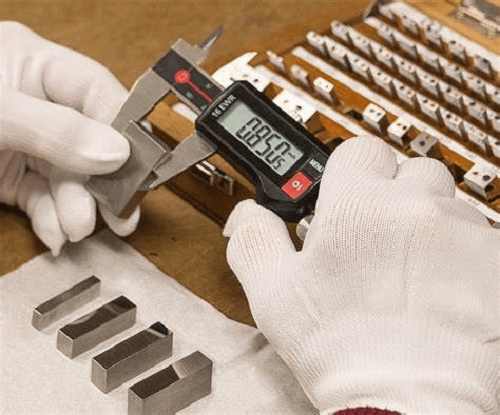Calibration DefinitionIn today's world, measurement plays an essential role in almost every aspect of our lives, from the food we eat to the products we use and the environment we live in. Accurate measurement is critical in ensuring quality, safety, and compliance with regulations, and this is where calibration comes into role. By definition, "calibration refers to the process of adjusting or checking a measuring instrument or a device to ensure that its readings are accurate and conform to a standard". It involves comparing the output of the instrument under test to a known reference value or measurement and adjusting the instrument if necessary to bring it into alignment with the reference standard. Calibration is a critical step in maintaining the accuracy and reliability of measurement equipment, such as thermometers, pressure gauges, pH meters, and balances. It is typically performed at regular intervals, depending on the type of instrument, its frequency of use, and the degree of accuracy required. 
What is Calibration?Calibration typically means: "Ensuring Accuracy and Reliability in Measurements". Calibration refers to the process of adjusting or verifying the accuracy of a measuring instrument or device by comparing it against a known reference standard, making calibration an essential process in many industries. This process ensures that the instrument or device provides reliable and accurate results that can be trusted for making critical decisions. Calibration is important in a wide range of industries, including manufacturing, healthcare, food and beverage production, and environmental monitoring, where accurate measurement is essential for quality control, safety, and regulatory compliance. The Importance of CalibrationCalibration is essential for ensuring the accuracy and reliability of measurements. Inaccurate measurements can have serious consequences, leading to product defects, safety hazards, and legal liabilities. For example, inaccurate measurements in the pharmaceutical industry can lead to the production of drugs that are either ineffective or harmful to patients. Similarly, inaccurate measurements in the aviation industry can lead to unsafe flying conditions. Calibration is also crucial for compliance with regulations and quality standards. Many industries are subject to regulations that require accurate measurements, such as the food and beverage industry, where accurate measurements are necessary for ensuring food safety and complying with food labeling regulations. Calibration is essential for many types of measuring instruments, including pressure gauges, thermometers, balances, pH meters, and many others. Calibration is typically done at regular intervals, depending on the type of instrument, the frequency of use, and the degree of accuracy required. The Calibration ProcessCalibration typically involves comparing the output of a measuring instrument or device against a known reference standard. It is a complex process that requires specialized knowledge, skills, and equipment. Trained technicians with specialized tools and software perform the calibration process, which involves comparing the output of the instrument or device against a known reference standard. If the output does not match the standard, the instrument or device may need adjustment to ensure accuracy. The reference standard can be a physical artifact, such as a weight or a thermometer, or a set of predefined specifications. The calibration process involves several steps, including below: PreparationThis involves ensuring that the instrument or device is clean, in good condition, and free from any defects that may affect its accuracy. ComparisonThis involves comparing the output of the instrument or device to the reference standard. The comparison is typically performed using calibration software or a device that can accurately measure the output of the instrument or device. AdjustmentIf the output of the instrument or device does not match the reference standard, it may need to be adjusted to ensure accuracy. This adjustment is typically made by a trained technician using specialized tools and software. DocumentationFinally, the calibration process is documented in a calibration certificate, which includes details such as the date of calibration, the reference standard used, the results of the calibration, and any adjustments made. ConclusionCalibration is an important process that guarantees accurate and reliable measurements. It helps in maintaining quality, safety, and regulatory compliance in different industries like manufacturing, healthcare, food and beverage production, and environmental monitoring. By ensuring that measuring instruments and devices are calibrated regularly, industries can make informed decisions based on accurate data. Regular calibration prevents costly errors and improves overall quality and safety. Inaccurate measurements can lead to product defects, safety hazards, and legal liabilities. Calibration is also crucial for compliance with regulations and quality standards. Overall, calibration is an investment that can pay off in the long run by preventing errors, improving quality, and ensuring safety. Industries must recognize the importance of calibration and ensure that they follow regular calibration schedules to maintain accurate and reliable measurements.
Next TopicClause Definition
|
 For Videos Join Our Youtube Channel: Join Now
For Videos Join Our Youtube Channel: Join Now
Feedback
- Send your Feedback to [email protected]
Help Others, Please Share










